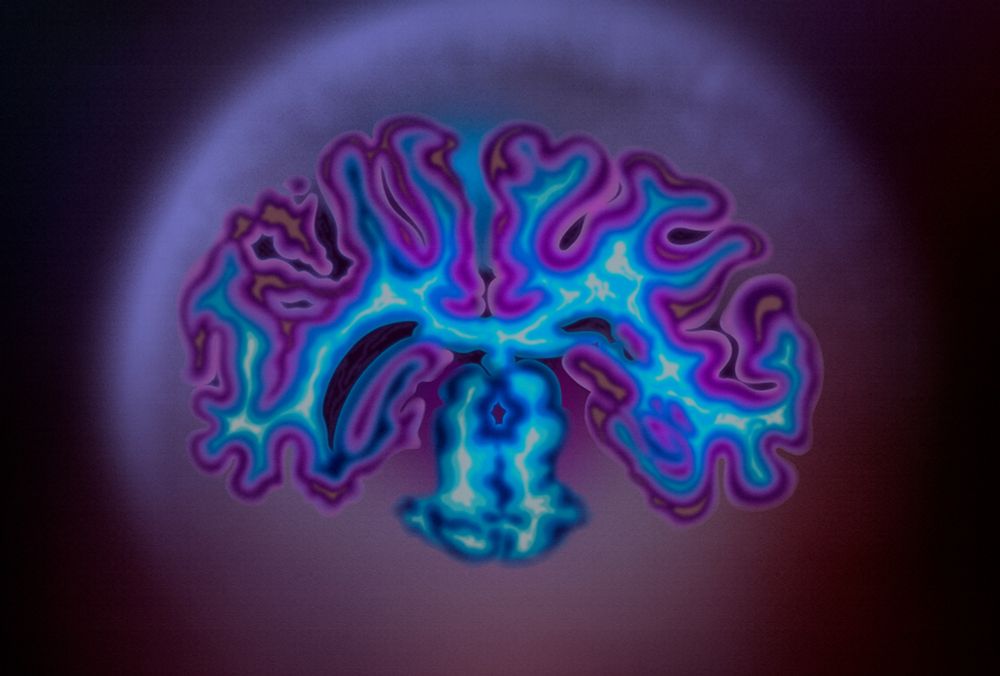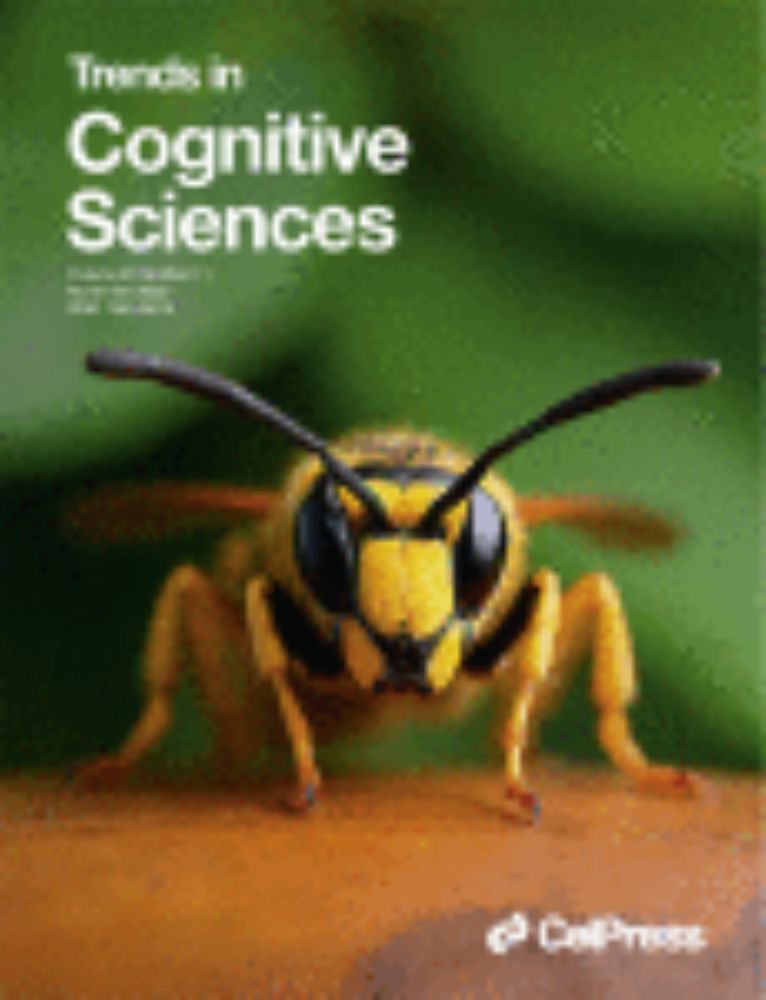YouTube video by Michigan Medicine
Sensory Horizons and Visual Consciousness in Non-Human Animal
Recording of a talk on "Sensory Horizons and Visual Consciousness in Non-human Animals" (www.youtube.com/watch?v=z_Pz...) at the University of Michigan. Based on the recent BBS paper on sensory horizons and consciousness w/ @smfleming.bsky.social.
04.12.2025 14:44 — 👍 26 🔁 8 💬 0 📌 0
YouTube video by Consciousness Live!
Consciousness Live! #1
I decided to start a new YouTube channel just for consciousness Live! and will be re-uploading past discussions there until I can host live discussions on that channel. Here is the very first one, from all the way back in 2018 with @hakwan.bsky.social
www.youtube.com/watch?v=AZbj...
03.12.2025 13:52 — 👍 4 🔁 1 💬 0 📌 0
I agree. Though note that given that the technology is relatively new a lot of the studies will be exploratory in nature I guess.
24.11.2025 21:00 — 👍 1 🔁 0 💬 0 📌 0
Didn't try it myself yet! Waiting for the IRB at MIT, but we should have a system on campus at some point.
22.11.2025 17:34 — 👍 1 🔁 0 💬 0 📌 0

The science of consciousness
The MIT Consciousness Club, led by professors Matthias Michel and Earl Miller, explores how neurological activity gives rise to human experience.
The science of consciousness
Through the MIT Consciousness Club, professors Matthias Michel and Earl Miller are exploring how neurological activity gives rise to human experience.
news.mit.edu/2025/science...
#neuroscience
19.11.2025 02:30 — 👍 43 🔁 8 💬 1 📌 1
YouTube video by Giant's Shoulder
Meet the MIT Neuroscientist Proving Brain Waves Are the Secret Engine Behind Consciousness
Giant Shoulders podcast: Meet the MIT Neuroscientist Proving Brainwaves are the Secret to Consciousness.
youtu.be/7OFb-NG3jIw
#neuroscience
18.11.2025 18:18 — 👍 21 🔁 3 💬 5 📌 2
www.biorxiv.org/content/10.1...
This study aimed to investigate how working memory interacts with perception at the behavioral level. We examined whether working memory modulates subjective perception when the general capacity for perceptual processing is kept constant.
1/
18.11.2025 10:40 — 👍 18 🔁 11 💬 1 📌 0
Reflection, Introspection, and Book - PhilSci-Archive
New Preprint from Kevin Dorst and me!
"Reflection, Introspection, and Book" is about arguments regarding probabilistic coherence and two other principles: reflection (your probabilities today are coherent with your probabilities tomorrow) and introspection (that you know your own beliefs).
05.12.2024 13:52 — 👍 38 🔁 3 💬 2 📌 1
Now out officially here! Published as part of a special issue on evolutionary functions of consciousness edited by W. Tecumseh Fitch, Colin Allen, & Adina Roskies, which also features fascinating contributions from several leaders in the field! royalsocietypublishing.org/doi/10.1098/...
13.11.2025 13:28 — 👍 12 🔁 1 💬 0 📌 0

Is #ketamine a good pharmacological model of #schyzophrenia?
W/ @lucieberko.bsky.social, @standehaene.bsky.social, R Gaillard, and A Salvador, we investigated the impact of ketamine on conscious processing and attention in healthy subjects.
Check the preprint!
www.biorxiv.org/content/10.1...
🧠🧪
13.11.2025 13:03 — 👍 8 🔁 1 💬 1 📌 1

Without monkeys, neuroscience has no future
Research in primate brains has been essential for the development of BCIs, ANNs. New funding and policy changes put future such advances at risk.
Research in primate brains has been essential for the development of brain-computer interfaces and artificial neural networks. New funding and policy changes put future such advances at risk, write Cory Miller, @movshon.bsky.social and Doris Tsao.
#neuroskyence
bit.ly/47MXYLH
10.11.2025 14:56 — 👍 56 🔁 31 💬 1 📌 5
Question for representational format people:
Greenberg’s (2023) way of making the iconic/symbolic distinction, as consisting in the different rules which state the semantic contents of signs, seems pretty popular. And it’s pretty neat.
(1/8)
05.11.2025 16:56 — 👍 10 🔁 1 💬 1 📌 0

Join us for tomorrow’s Consciousness Club - Yair Pinto (www.uva.nl/en/profile/p...) on “No easy solutions for the Hard Problem of consciousness”. Should be fun!
Wednesday Nov 5th, 11am-1230pm UK time
For more info and how to join see metacoglab.org/consciousnes...
04.11.2025 17:47 — 👍 9 🔁 3 💬 0 📌 1

"Intuitions of mathematical curves in young children's drawings"
In this new paper from the lab, Lorenzo Ciccione, Marie Lubineau, Theo Morfoisse and I show that 5 and 6 year olds already possess intuitions of linearity, curvature, period and compositionality.
www.sciencedirect.com/science/arti...
01.11.2025 13:51 — 👍 36 🔁 10 💬 0 📌 1
This is a point made by Doug Hofstadter in this 1981 dialogue: www.cse.unr.edu/~sushil/clas...
01.11.2025 11:19 — 👍 2 🔁 1 💬 1 📌 0
Replicating the unconscious working memory effect: A multisite preregistered study: https://osf.io/sj7fz
30.10.2025 17:14 — 👍 7 🔁 5 💬 0 📌 1
Steve and I are currently working on the response, it's been really great to read and think about all the commentaries (>150 pages of commentaries!) I thought the speech processing example in this one was excellent, and more grist to our mill!
29.10.2025 14:22 — 👍 4 🔁 0 💬 1 📌 0
I’m not saying we should ignore the biological details. I think the details matter a lot for implementing the right functions. But if you think biology matters beyond that, just give me a *biological* property that reliably distinguishes conscious from unconscious states.
25.10.2025 04:49 — 👍 7 🔁 2 💬 3 📌 0
I’m a philosopher interested in (philosophy of) mind and (bio)ethics.
https://sites.google.com/site/theshenpan
Philosopher at the University of Osnabrück 📚 Working on the philosophy of (Neuromorphic) AI, computation, and science.
MD/PhD student at the University of Pittsburgh-Carnegie Mellon University MSTP. Interested in computational neuroscience and cognition.
Cognitive Scientist, Associate Professor at Boston University, Director of the Developing Minds Lab https://www.bu.edu/cdl/developing-minds-lab/
Postdoc working on human cognition about abstract concepts at the SWC, London. Cog/comp-(neuro)scientist wannabe; adequate climber.
PhD Student | École normale supérieure (Paris) | Computational Modeling of Meta-Cognition
Philosopher at Durham University fintanmallory.com
Language processing - Neuroscience - Machine Learning - Assistant Professor at Stanford University - She/Her - 🏳️🌈
Neuroscience, subjective experience and all things consciousness
Professor of Philosophy at Toronto Metropolitan University (formerly Ryerson). I paddle my own canoe. To find my publications, visit PhilPeople. https://philpeople.org/profiles/david-hunter
Computational cognitive neuroscientist @cnrs.fr 🧠💻
Inner speech, mental/motor imagery, cognitive/statistical modelling, EMG, M/EEG, open and slow science. https://lnalborczyk.github.io
Philosopher, Socialist Feminist, Activist, Vegan, and much more.
Postdoc at Yale University. I study high-level visual perception👀 and motor action👋
daweibai.com
PhD candidate@DondersInst| Formerly CNS Msc@DondersInst| Multisensory perception| Neural decoding| Temporal dynamics| System Neuroscience
PGY 4 Neurology, interested in #consciousness #coma and #AI in #Neurocriticalcare
cognitive neuroscience postdoc at stanford
https://bootstrapbill.github.io/
he/him
Researcher of attention, perception, and sensory loss | Reader of psychology, philosophy, and fiction | Assistant Professor at Gonzaga by way of UMN and Dartmouth

















